Journal Articles by David Frank
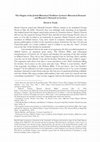
Journal of Communication and Religion, 2021
Derek Chauvin stared into Darnella Frazier's iPhone camera as he murdered George Floyd on May 20,... more Derek Chauvin stared into Darnella Frazier's iPhone camera as he murdered George Floyd on May 20, 2020. 1 Chauvin's face was strikingly cold, smacking of an impunity that helped launch the largest racial justice protest in American history. 2 Derek Chauvin did not see the sacred in George Floyd's face and did not hear George Floyd's cries of pain, or if he did, he failed to act humanely in response. Derek Chauvin, and the first murderer in biblical history, Cain, have much in common. Emmanuel Levinas, our greatest philosopher of ethics in the twentieth century, looked into the face of Cain and found him guilty of a "sober coldness" and of a failure to see that the "trace" of God was in the face of the brother he murdered. 3 Cain murdered Abel in the wake of an argument, the first recorded argument in biblical history, an argument gone astray. The Hebrew Bible, and subsequent interpretations of Genesis 4:1-16 report and interpret the meaning of the first murder in biblical history. They tell us that Yahweh angered Cain by favoring Abel's sacrifice over the one he had offered. 4 Cain and his brother Abel then go into a field to argue. 5 The argument ends when Cain takes a stone and drives it into Abel's forehead, killing his brother. God comes on the scene and asks Cain, "Where is your brother, Abel?" Cain responds, according to the Hebrew Bible, "I do not know. Am I my brother's keeper?" 6 In his reflection on Cain's response, Levinas did not see it "as a case of simple insolence. Instead, it comes from someone who has not yet experienced human solidarity and who thinks (like many modern philosophers) that each exists for oneself and that everything is permitted." 7 Cain, Levinas suggests, had not developed the moral capacity
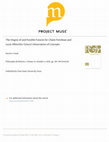
.Philosophy and Rhetoric , 2021
a bstr ac t This essay tells the story of Perelman and Olbrechts-Tyteca's "dissociation of concep... more a bstr ac t This essay tells the story of Perelman and Olbrechts-Tyteca's "dissociation of concepts," which they introduced in 1958 and is in use as a tool of criticism by many rhetorical critics. The story begins in England with John Locke's development of associative reasoning in 1770 and then moves to France, with Remy de Gourmont extending associative reasoning with the concept of dissociation in 1899. Gourmont's dissociation crosses the Atlantic and is then developed by Kenneth Burke in 1931. In turn, Perelman and Olbrechts-Tyteca absorbed and expanded Locke, Gourmont, and Burke's theories of association and dissociation in 1958. They crafted a tool, the dissociation of concepts, that equips rhetorical reasoning with the capacity to navigate between the promise and perils of fission and fusion. Since 1958, many scholars have made productive use of Perelman and Olbrechts-Tyteca's innovation. The essay concludes with some possible futures for their dissociation of concepts.
Rhetoric and Public Affairs , 2020
Rhetoric Review , 2018
Between 1942 and 1960, Robert T. Oliver, professor of speech at Pennsylvania State University, se... more Between 1942 and 1960, Robert T. Oliver, professor of speech at Pennsylvania State University, served as a ghostwriter and advisor for the first president of South Korea, Syngman Rhee. Celebrated as the founder of South Korea and condemned for human rights abuses and an irrepressible desire to wage war on North Korea, Rhee remains a controversial historical figure. In this essay, we use Lepora and Goodin’s theory of complicity to assess Oliver’s responsibility for the creation and effects of Rhee’s rhetoric.
Genocide Studies and Prevention: An International Journal, 2018
ASEAN member states represent a region that has experienced a dramatic reduction in mass atrocity... more ASEAN member states represent a region that has experienced a dramatic reduction in mass atrocity crimes in the last forty years. Scholars have identified three structural explanations for this reduction: the decrease in the use of mass atrocities as a tool of war, rising incomes, and the spread of democracy. The evolution of complex and contested human rights norms during this same period contributed significantly to the positive role played by the three structural factors in the decline of atrocity crimes. This paper highlights the human rights norms that anchor ASEAN atrocity prevention mechanisms and suggests that the association can serve as a model for other regional organizations.
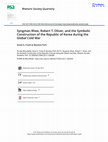
Rhetoric Society Quarterly , 2018
Robert T. Oliver, a professor of speech at Pennsylvania State University, served as a ghostwriter... more Robert T. Oliver, a professor of speech at Pennsylvania State University, served as a ghostwriter for Syngman Rhee, the first president of the Republic of South Korea between 1943 and 1960. Within the larger context of an ongoing global Cold War and the division of the Korean peninsula in August 1945, Oliver and Rhee developed a foundational myth, Puk-jin Tongil ( ), to build the new nation of South Korea. The Puk-jin Tongil myth called for a reunification of the Korean people and land through a US-led invasion of North Korea and was paired with a myth of enemyship that named the Communists of North Korea as essentially evil, estranged them as beyond the pale of rationality, and escalated the conflict between the two Koreas. In this essay, we
consider the first full presentation of the Puk-jin Tongil myth in Rhee’s August 15, 1948, inaugural address, which had significantly different versions: an English version written by Oliver and a Korean version delivered at the inaugural ceremony by Rhee. Rhee’s confrontational version of the myth was delivered in Korean to his South Korean audience while Oliver presented a much tamer version in his English draft of the inaugural, targeting an American audience. Rhee’s speech, we
suggest, foreshadowed his dictatorial approach to the presidency and revealed tensions between the president and the US government and in the Rhee-Oliver collaboration. Our essay fills a gap in our understanding of nation-building through mythic rhetoric in the global Cold War, contributes to our disciplinary history with its focus on Oliver’s role in Rhee’s symbolic efforts, and offers a judgment of the mythic rhetoric crafted by the Rhee-Oliver collaboration.
Journal of Communication and Religion , 2016
Journal of Communication and Religion , 2016
David A. Frank is professor of rhetoric at the University of Oregon. Frank's research and teachin... more David A. Frank is professor of rhetoric at the University of Oregon. Frank's research and teaching interests feature "deep rhetoric" -the study and practice of reason expressed in argumentation seeking justice. His research agenda incorporates rhetorical theory and history, with a focus on argumentation and forensics education, the rhetoric of the Israeli-Palestinian conflict, the rhetoric of Barack Obama, and Chaïm Perelman's New Rhetoric Project -for which he has performed significant archival research in Israel, Belgium, and the United States related to what is arguably the most important theory of rhetoric in the twentieth century.
a discipline shunned by twentieth-century Oxonians, was on full display at the conference, sugges... more a discipline shunned by twentieth-century Oxonians, was on full display at the conference, suggesting that twenty-first century Oxford is interested in things rhetorical. This report describes the form of the conference and the rhetorical notions advanced, discussed, and debated by the participants. The conference included important scholars of rhetoric as keynote or priming speakers: Sir Brian Vickers, Peter Mack, Jennifer Richards, and James Murphy. Enacting the spirit of rhetoric and scholastic disputation, the symposium delegates put the ideas presented by the priming speakers to the test of argumentation in planned responses to each priming speaker and in a parliamentary style debate. The symposium was deemed as success. The Oxford setting sponsored an atmosphere supportive of dialogue and civil disagreement necessary to the understanding of the rhetorical tradition's future.
Israelis and Palestinians are engaged in a civil war, and their mythic systems will need to chang... more Israelis and Palestinians are engaged in a civil war, and their mythic systems will need to change before a pragmatic peace can break out. In this study, we examine Palestinian and Israeli myths, which consist of narratives both people use to define their identity, land, and the ''other.'' Drawing from the literature on rhetoric and myth, we explain how Israeli Revisionist and Palestinian Islamic fundamentalist discourse set forth stories to counter threats to identity. After describing the features of these stories, we place them in historical context and track how they change in and over time.
Drawing on his two books, Dreams from my Father and Th e Audacity of Hope, the prophetic African ... more Drawing on his two books, Dreams from my Father and Th e Audacity of Hope, the prophetic African American Christian mythic system, and a rhetoric of argumentative reason, Barack Obama developed literary, mythic, and rhetorical signatures during his campaign for president. His signatures recast binary oppositions and answered questions of identity with a set of dissociations, rhetorical acts intended to transform the relationship between contraries. In his inaugural address, Obama adapts these signatures to the assumption of power as president by recalling and rescuing the cosmopolitan expression of American civil religion.
Scholars do not have access to a complete bibliography of the new rhetoric project. We have redre... more Scholars do not have access to a complete bibliography of the new rhetoric project. We have redressed this problem by compiling what we believe is the most comprehensive bibliography to date of the works of Chaïm Perelman and of those he coauthored with Lucie Olbrechts-Tyteca. e bibliography includes all the English and French titles, as well as titles that saw fi rst publication in other languages. Translations we believe Perelman may have authorized or endorsed are included.
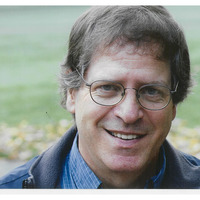



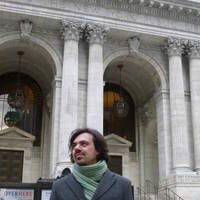

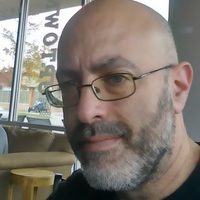

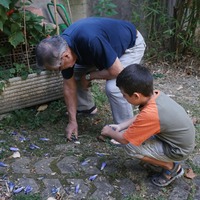

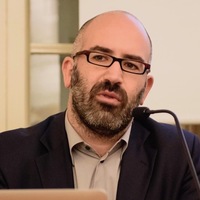
Uploads
Journal Articles by David Frank
consider the first full presentation of the Puk-jin Tongil myth in Rhee’s August 15, 1948, inaugural address, which had significantly different versions: an English version written by Oliver and a Korean version delivered at the inaugural ceremony by Rhee. Rhee’s confrontational version of the myth was delivered in Korean to his South Korean audience while Oliver presented a much tamer version in his English draft of the inaugural, targeting an American audience. Rhee’s speech, we
suggest, foreshadowed his dictatorial approach to the presidency and revealed tensions between the president and the US government and in the Rhee-Oliver collaboration. Our essay fills a gap in our understanding of nation-building through mythic rhetoric in the global Cold War, contributes to our disciplinary history with its focus on Oliver’s role in Rhee’s symbolic efforts, and offers a judgment of the mythic rhetoric crafted by the Rhee-Oliver collaboration.
consider the first full presentation of the Puk-jin Tongil myth in Rhee’s August 15, 1948, inaugural address, which had significantly different versions: an English version written by Oliver and a Korean version delivered at the inaugural ceremony by Rhee. Rhee’s confrontational version of the myth was delivered in Korean to his South Korean audience while Oliver presented a much tamer version in his English draft of the inaugural, targeting an American audience. Rhee’s speech, we
suggest, foreshadowed his dictatorial approach to the presidency and revealed tensions between the president and the US government and in the Rhee-Oliver collaboration. Our essay fills a gap in our understanding of nation-building through mythic rhetoric in the global Cold War, contributes to our disciplinary history with its focus on Oliver’s role in Rhee’s symbolic efforts, and offers a judgment of the mythic rhetoric crafted by the Rhee-Oliver collaboration.
Plus, just how powerful are words? David Frank, a professor of rhetoric at Honors College at the University of Oregon, discusses the importance of discourse.